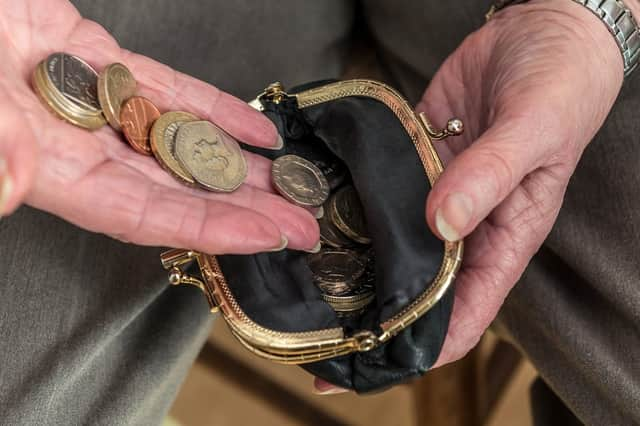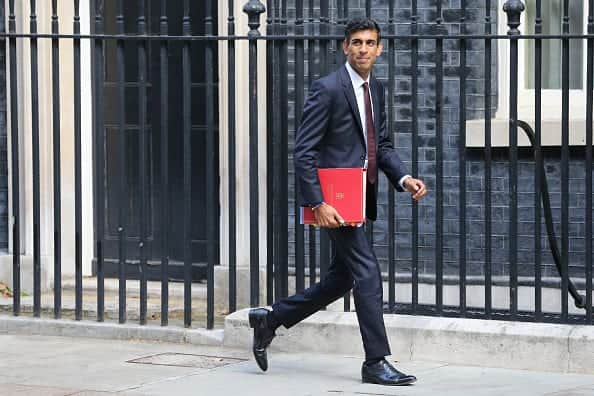High earners face cuts to pension tax relief in the new budget - here’s how it could affect you


High earners could be stripped of 40 per cent of their pension tax relief in next month’s budget, as part of the government's pledge to “level up” the economy.
Prime Minister Boris Johnson and newly-appointed Chancellor Rishi Sunak are to meet for detailed budget talks for the first time on Wednesday 19 February, with the pair said to be keen to relax spending rules, The Times reports.
Cutting relief rates


Advertisement
Hide AdAdvertisement
Hide AdThe Treasury is understood to have drawn up plans to cut the rate of relief for higher earners from 40 per cent down to 20 per cent, in a move which would raise £10 billion per year.
Higher earners currently enjoy 40 per cent tax relief on pension contributions, compared to just 20 per cent for lower earners.
Under the proposed changes, everyone would be entitled to the same 20 per cent pension tax relief.
A report in the Financial Times suggested that former Chancellor Sajid Javid was not entirely convinced by the plan, which is likely to be met with strong opposition among traditional Tories if it is introduced in the upcoming budget.
Advertisement
Hide AdAdvertisement
Hide AdThere are growing concerns on the Tory benches over hints that Boris Johnson wants next month’s budget to mount a tax raid on Middle England, with rumours there will be cuts in savings tax relief, a mansion tax, or the creation of new council tax bands for expensive homes.
What is Pension Tax Relief?
If you pay into a private pension, you can receive tax relief on contributions worth up to 100 per cent of your annual earnings.
According to gov.uk, you are automatically entitled to tax relief if:
your employer takes workplace pension contributions out of your pay before deducting Income Taxyour rate of Income Tax is 20 per cent - your pension provider will claim it as tax relief and add it to your pension pot
Advertisement
Hide AdAdvertisement
Hide AdIn Scotland, if your rate of Income Tax is 19 per cent, your pension provider will claim tax relief for you at a rate of 20 per cent, and you do not need to pay the difference.
You receive tax relief at source in all personal and stakeholder pensions, and some workplace pensions, and it is also available on contributions made to certain types of overseas pension schemes.
It is your responsibility to ensure you are not getting tax relief on pension contributions worth more than 100 per cent of your annual earnings.
HM Revenue and Customs (HMRC) can ask you to pay back anything over this limit.
Advertisement
Hide AdAdvertisement
Hide AdPrime Minister Boris Johnson and Chancellor Rishi Sunak are said to be keen to relax spending rules (Photo: Getty Images)
When can you claim tax relief?
You may be entitled to claim tax relief on pension contributions if you pay Income Tax at a rate above 20 per cent, and if your pension provider claims the first 20 per cent for you.
You may also be able to claim it if your pension scheme is not set up for automatic tax relief, or if someone else pays into your pension.
In England, Wales and Northern Ireland you can claim additional tax relief on your Self Assessment tax return you put into a private pension of:
Advertisement
Hide AdAdvertisement
Hide Ad20 per cent up to the amount of any income you have paid 40 per cent tax on
25 per cent up to the amount of any income you have paid 45 per cent tax on
You can also call or write to HMRC to claim if you pay Income Tax at 40 per cent.
In Scotland, you can claim additional tax relief on your Self Assessment tax return for money you put into a private pension of:
Advertisement
Hide AdAdvertisement
Hide Ad1 per cent up to the amount of any income you have paid 21 per cent tax on
21 per cent up to the amount of any income you have paid 41 per cent tax on
26 per cent up to the amount of any income you have paid 46 per cent tax on
What if your pension scheme isn’t set up for automatic tax relief?
If your pension scheme isn’t set up for automatic tax relief, you can claim it in your Self Assessment tax return, or call or write to HMRC if you do not fill in a tax return.
Advertisement
Hide AdAdvertisement
Hide AdYou cannot claim tax relief if your pension provider is not registered with HMRC.
What if someone else pays into your pension?
If someone else pays into your pension, such as your partner, you automatically get tax relief at 20 per cent if your pension provider claims if for you.
If you are in a workplace pension that allows other people to contribute, you may need to claim the tax relief on those contributions. You can do this by calling or writing to HMRC.
What if you do not pay Income Tax?
If you do not pay Income Tax, you still automatically get tax relief at 20 per cent on the first £2,880 you pay into a pension each tax year (6 April to 5 April).
This is providing both of the following apply to you:
Advertisement
Hide AdAdvertisement
Hide Adyou do not pay Income Tax, for example because you’re on a low incomeyour pension provider claims tax relief for you at a rate of 20 per cent
What about life insurance policies?
You cannot get tax relief if you use your pension contributions to pay a personal term assurance policy, unless it is a protected policy.
Personal term assurance is a life insurance policy that either ends when the first insured person dies, or insures people who are all from the same family.